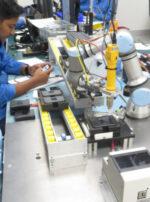Embrace the fourth industrial age—or become a backwater
By Albert Palazzo The world is on the cusp of a new industrial age—the fourth. As with previous industrial ages, those who embrace it first stand to become the dominant powers of the future and will seize the right to set the rules that define the age. Those that are late to the party will struggle to secure their place and avoid a decline into humanity’s future backwaters. Australia has a choice to make: whether to undergo the social, political and cultural disruption that will result from the embrace of emerging technologies, or to continue to support an economy based on the status quo. In making this choice, Australia will also determine its security future. One of the likely changes of the fourth industrial age to which Australia will need to adapt is the decline in relative value of primary resources and manufactured goods compared to information. The rapid growth of additive manufacturing (3D printing) demonstrates this point. 3D factories, using very few staff, are coming into existence. These factories have certain advantages over current means of production. Being additive, 3D printers are very efficient and require less feed stock—iron ore for example—than traditional subtractive manufacturing. They can also be located anywhere, and be arrayed as individual units or in their thousands. That will promote distributed manufacturing. Many countries in Asia, including China, have chosen to lift their people out of poverty by becoming the manufacturer to the ‘Walmarts’ of the world. That model will come undone when every Australian, European, American and even Asian home has a 3D printer with which families can print whatever they want, from food to high-quality clothes and beyond. Value will cease to reside in the product, but will be found in the design. And as the economic foundations of the developing world fail, instability and social collapse […]









